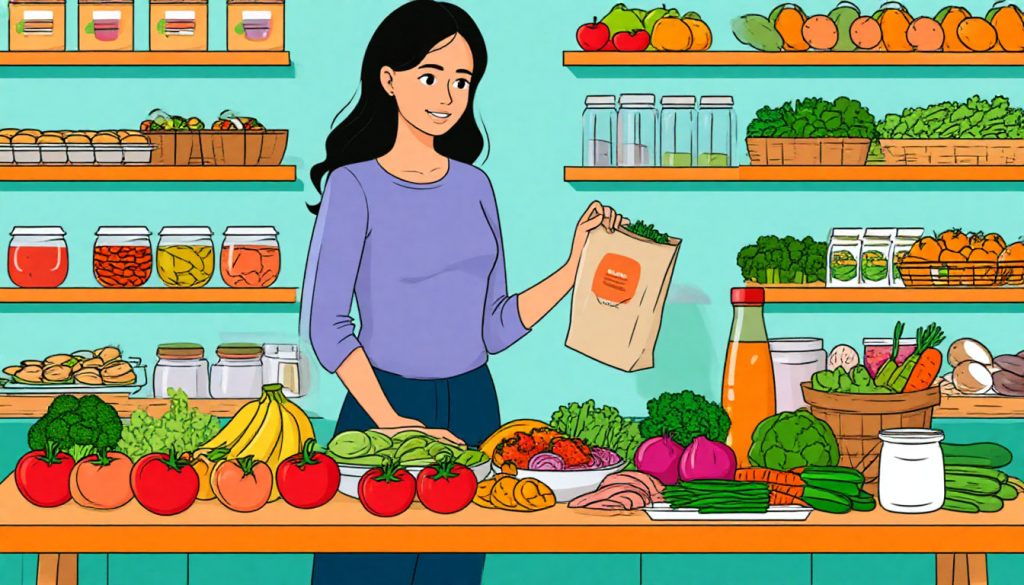Healthy eating doesn’t have to mean expensive superfoods or complex recipes. In fact, some of the most nutritious meals can be made using basic, budget-friendly ingredients. The key is variety, balance, and preparation. With a little planning, anyone can build a weekly menu that supports well-being, energy, and long-term health — without breaking the bank.
Simple foods like grains, legumes, vegetables, fruits, eggs, and dairy provide all the essential nutrients your body needs. When combined thoughtfully, they can form satisfying, flavorful meals that work for any schedule or skill level.
Key Components of a Balanced Weekly Menu
To ensure your weekly diet is healthy and sustainable, include the following core components every day:
- Whole grains: oats, whole wheat pasta, bulgur, buckwheat
- Vegetables: fresh, frozen, or canned — aim for variety in color and type
- Fruits: affordable options like apples, bananas, oranges, seasonal produce
- Proteins: eggs, legumes (lentils, beans), canned fish, lean poultry
- Healthy fats: olive oil, seeds, nuts
- Dairy or alternatives: milk, also possible kefir, yogurt, cottage cheese
Avoid ultra-processed foods with added sugars, trans fats, and artificial additives whenever possible.
Sample Weekly Menu Plan (Budget-Friendly)
Monday
- Breakfast: Oatmeal with banana and sunflower seeds
- Lunch: Lentil soup with whole grain bread
- Dinner: Baked chicken thighs with roasted carrots and buckwheat
Tuesday
- Breakfast: Cottage cheese with apple slices
- Lunch: Tuna salad with cabbage, carrots, and oil dressing
- Dinner: Spaghetti with tomato and vegetable sauce
Wednesday
- Breakfast: Scrambled eggs and whole grain toast
- Lunch: Rice with sautéed vegetables and canned beans
- Dinner: Oven-baked potatoes with kefir and pickled vegetables
Thursday
- Breakfast: Yogurt with oats and raisins
- Lunch: Barley porridge with boiled eggs and cucumber
- Dinner: Stir-fried cabbage with carrots and turkey pieces
Friday
- Breakfast: Buckwheat with a bit of butter
- Lunch: Baked fish with mashed peas and brown rice
- Dinner: Vegetable soup and a slice of rye bread with cottage cheese
Saturday
- Breakfast: Peanut butter on whole grain toast
- Lunch: Chickpea salad with tomatoes and herbs
- Dinner: Stuffed bell peppers with rice and ground chicken
Sunday
- Breakfast: Pancakes made with oats and yogurt, topped with fresh fruit
- Lunch: Chicken broth with vegetables and noodles
- Dinner: Grilled eggplant and zucchini with a poached egg
Tips for Success
- Use what you have: Adjust recipes to fit local, seasonal, or leftover ingredients.
- Shop smart: Buy in bulk, choose store brands, and prioritize staples.
- Plan ahead: A menu helps reduce impulse buying and food waste.
- Meat in menu is not really needed: eggs and fish is much better and cheaper alternatives
Eating well is a habit, not a luxury. By keeping it simple and consistent, you can fuel your body and mind affordably.
Glossary
- Whole grains – Grains that retain all parts of the seed, providing more fiber and nutrients than refined grains.
- Legumes – A family of nutrient-rich plants that includes lentils, beans, peas, and chickpeas.
- Processed foods – Items altered from their original form, often with added sugars, fats, or preservatives.
- Batch cooking – Preparing large amounts of food at once for use over several days (not recommended).


